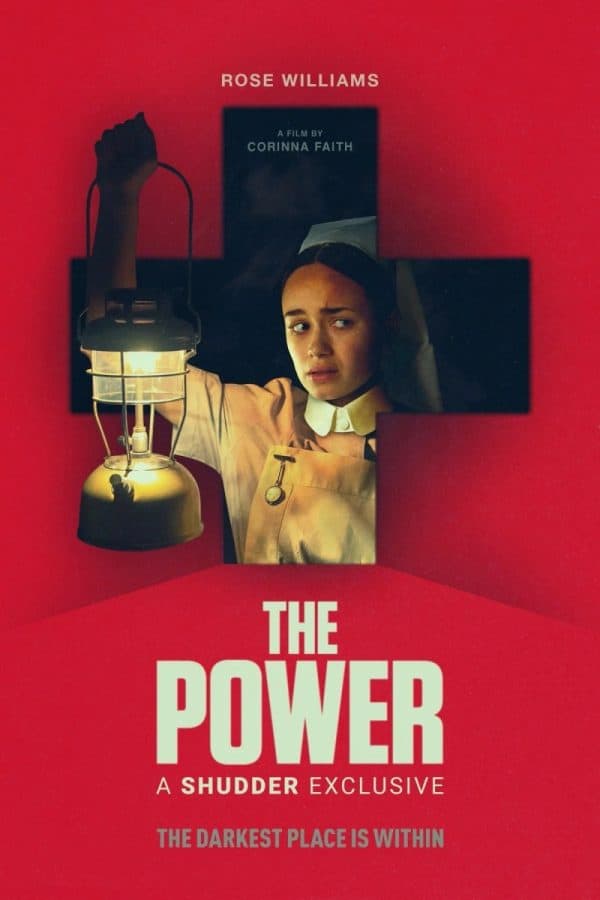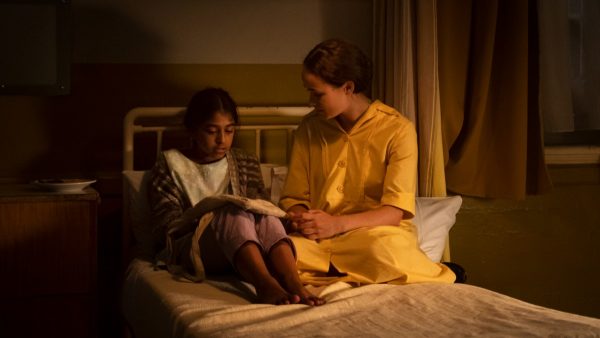The Power, 2021.
Directed by Corinna Faith.
Starring Rose Williams, Shakira Rahman, Emma Rigby, Gbemisola Ikumelo, Theo Barklem-Biggs, Diveen Henry and Charlie Carrick.
SYNOPSIS:
A newbie nurse at a London hospital finds herself spending a terrifying evening on the intensive care ward amid a government-imposed blackout.
In the winter of 1973/74, Britain was hit by blackouts as striking miners meant the country’s coal reserves were running low. The Tory prime minister Edward Heath opted to ration electricity usage, with many essential services plunged into inky darkness for periods of time. It’s against the backdrop of that unrest and economic turmoil that writer-director Corinna Faith’s sophomore feature The Power takes place.
Rose Williams plays newbie nurse Val, who has just taken a job at a London hospital. Her tyrannical matron (Diveen Henry) warns her that she’s very much on probation, declaring ominously that “a nurse must give herself entirely – sacrifice”. Unfamiliar with the labyrinthine halls of the hospital, Val is assigned the “Dark Shift” and is allocated to the intensive care unit with less-than-bothered colleague Babs (Emma Rigby). It doesn’t take long for the emergency generator to fail, amplifying the darkness and allowing plenty of things to go bump in the night.
There’s an efficient, atmospheric feel to The Power, which unfolds entirely within the walls of the hospital. Its jumps and jolts might be a little generic, but the command of lighting is impressive and Faith knows how to maximise every shadow and shape moving in the darkness. The atmosphere is assisted by Elizabeth Bernholz and Max de Wardener’s score which, although initially overwrought, becomes a real asset when the movie grows in intensity around it.
Williams does a stellar job in the lead role, conveying the character’s troubled past and increasingly unsettled mental state with expressive eyes piercing through the flickering gas lamps which light the action. One scene in which her character appears to become possessed is a genuinely disquieting display of intense physicality. Few members of the supporting cast get much chance to make an impression, though Theo Barklem-Biggs is effectively creepy as a lecherous hospital employee and youngster Shakira Rahman is charming as runaway child Saba, with whom Val forms an emotional bond.
The movie suffers in a lot of ways from its proximity to the similarly themed Saint Maud. Like that film, this marries elements of religion and medicine through the lens of a female protagonist. But sadly, The Power lacks the overall sharpness of Rose Glass’s film and there’s nothing here to match Morfydd Clark’s live-wire central performance. Positioned against last year’s horror hit, The Power sometimes looks a little pedestrian.
Although Faith’s script deals with some serious and powerful themes bubbling beneath its surface, these are left under-explored and particularly suffer in the face of a third act twist which feels as if it has been borrowed from a considerably sillier movie. Ultimately, The Power feels like it never fully commits to any element of its premise and, as a result, emerges as a fitfully effective exercise in hospital horror. Rather fittingly for a movie set during a blackout, it gets lost in the dark.
Flickering Myth Rating – Film: ★ ★ ★ / Movie: ★ ★ ★
Tom Beasley is a freelance film journalist and wrestling fan. Follow him on Twitter via @TomJBeasley for movie opinions, wrestling stuff and puns.















